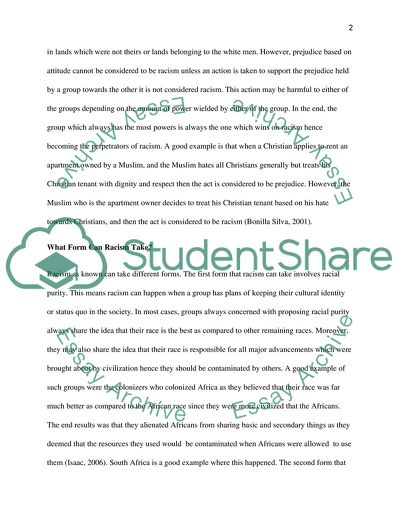Cite this document
(“Racism As Social Phenomenon Essay Example | Topics and Well Written Essays - 4000 words”, n.d.)
Retrieved from https://studentshare.org/social-science/1692539-please-follow-the-instruction
Retrieved from https://studentshare.org/social-science/1692539-please-follow-the-instruction
(Racism As Social Phenomenon Essay Example | Topics and Well Written Essays - 4000 Words)
https://studentshare.org/social-science/1692539-please-follow-the-instruction.
https://studentshare.org/social-science/1692539-please-follow-the-instruction.
“Racism As Social Phenomenon Essay Example | Topics and Well Written Essays - 4000 Words”, n.d. https://studentshare.org/social-science/1692539-please-follow-the-instruction.


